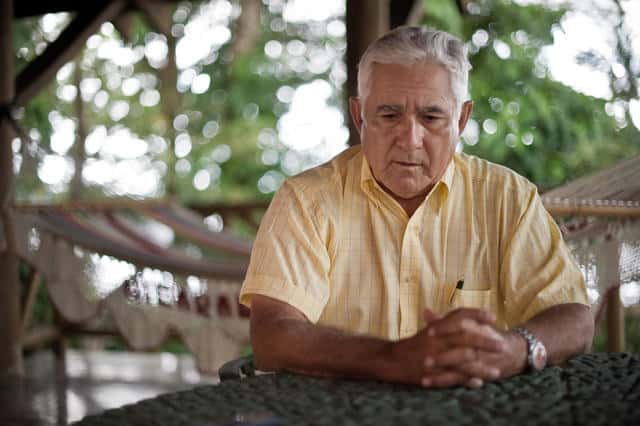MANAGUA – It has been 26 years since Edén Pastora captured the world’s attention as the dashing “Comandante Cero” who led a daring 1978 guerrilla raid on Managua’s National Palace and took Congress hostage.
Now, under the banner “For Nicaragua Once Again,” the larger-than-life Pastora plans to retake control of the capital city, only this time as Managua’s democratically elected mayor.
The former revolutionary hero-turned Contra leader held a political rally Sunday afternoon outside his Managua home, where he announced to some 500 supporters that he has been offered the mayoral candidacy for the minority Liberal Independent Party (PLI). He told the crowd that his political movement For Nicaragua Once Again, which is not an inscribed party, would have to discuss the offer before making an official decision. He confirmed his candidacy to The Tico Times 48 hours later.
AT 67, Pastora is showing no signs of slowing down and insists that he is approaching politics with his trademark all-or-nothing attitude. “I will definitely win, otherwise I wouldn’t enter,” Pastora told The Tico Times after Sunday’s rally. “I take the Palace, or I don’t do anything. I make war, or I don’t do anything. I am President or Mayor, or I don’t do anything.”
Pastora, who has never held a public office and spent the last decade dabbling as a shark hunter, also has made known his willingness to run for President next year, if any party will offer him the candidacy. He attempted to run for President in 1996, but the Supreme Elections Tribunal did not grant his upstart party ballot access.
AS a political figure, Pastora is relying heavily on his historic image as Comandante Cero to rally disenfranchised voters around what he calls his “mystique” and “historical legitimacy.” He said he believes his image will translate into electoral success in a caudillo-dominated bipartisan political system. On that same token, Pastora said, he is not worried about competing for the third-party option with the upstart Alliance for the Republic, a new political coalition that is challenging the caudillo – or party boss strongman – voting tradition (TT, June 4).
“They are a party without a face, a party without a leader. I predict they will have a difficult future,” Pastora said, adding, “We think that we will become the true third option that will be the only alternative for Nicaragua.” However, like Alliance for Nicaragua, Pastora’s political movement has defined itself only in general terms and has no clear political platform or proposals for the country.
Pastora had hoped for thousands of supporters from around the country to show up at his rally to support his grassroots movement For Nicaragua Once Again, which he refers to as a “sacred organization.” He blamed the lower-than-expected turnout on a country that has become politically apathetic after years of corrupt administrations.
PASTORA the soldier proved to be a tough man to tame or beat. He captured Congress in 1978 with only 25 soldiers and negotiated the prison release of Sandinista leaders Daniel Ortega, Omberto Ortega and Tomás Borge, before escaping on a charter flight to Cuba. He defected from the Sandinista front when he felt the Ortega brothers sold out the country to the communists, and became the leader of the southern front Contras in Costa Rica.
During the 1980s, Pastora survived several attempts on his life, including the terrorist attack during a press conference at his jungle headquarters at La Penca 20 years ago (TT, May 28).
What remains to be seen is if Pastora the politician will display the same resilience and luck; if the cult of personality that transformed Edén Pastora the fisherman into Comandante Cero the war hero can again be called on to make him Mayor of Managua, or perhaps even President of Nicaragua.








